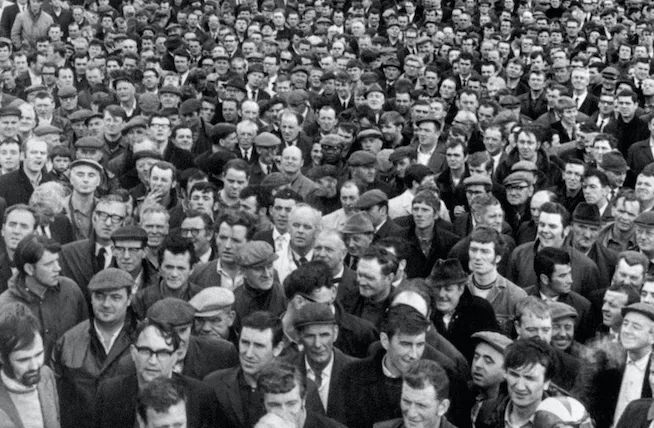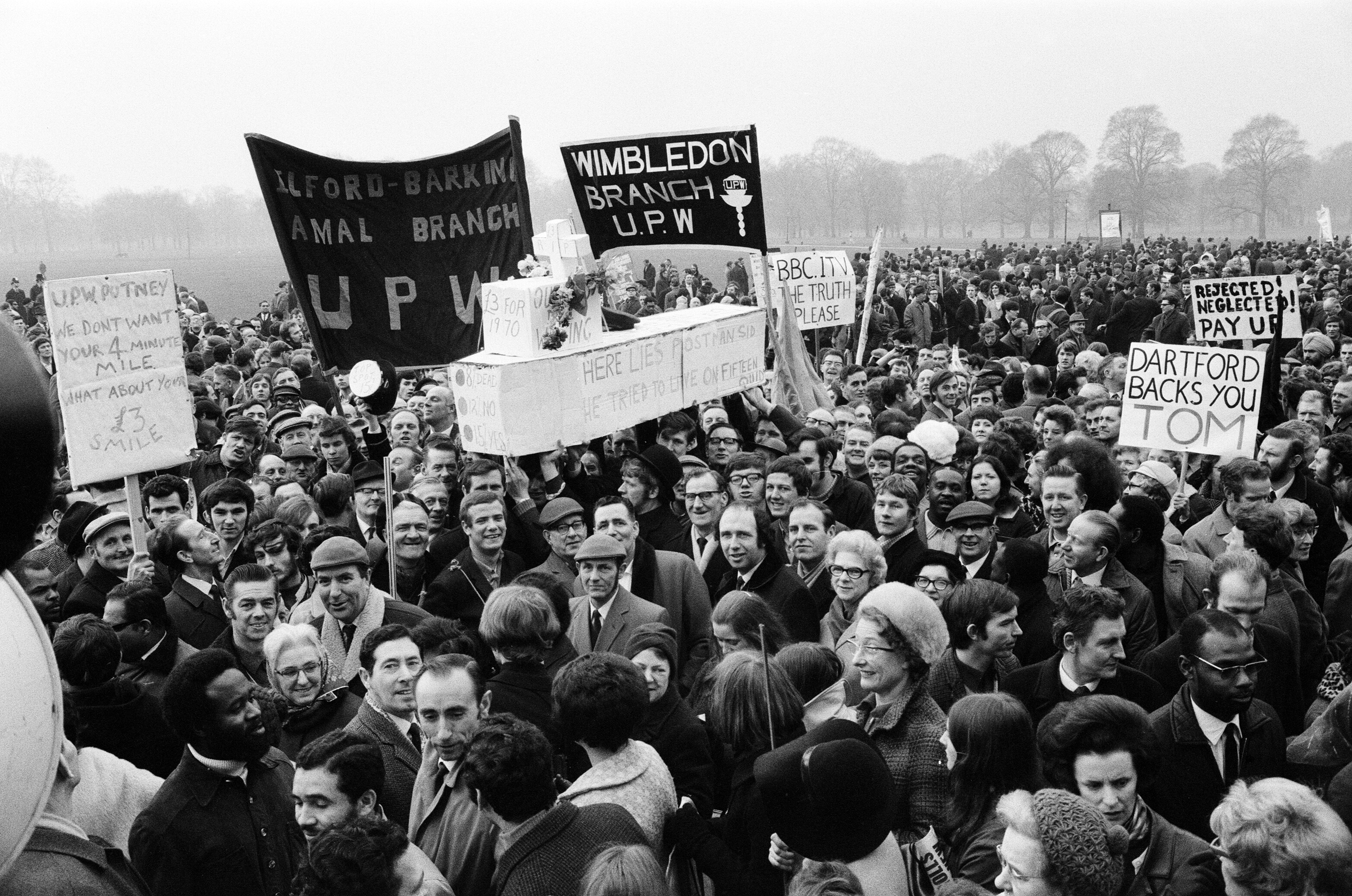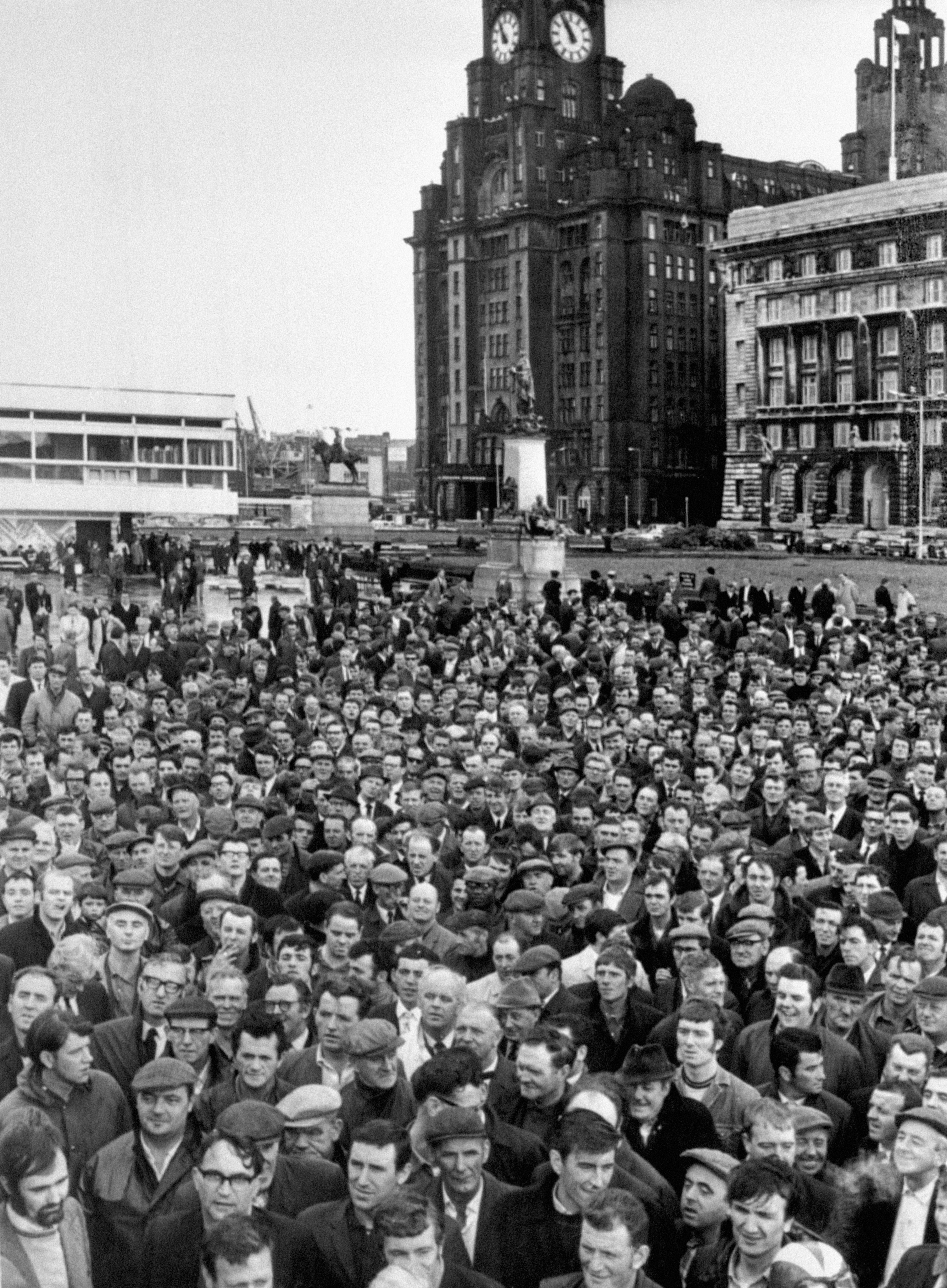How five journalists started a radical Liverpool newspaper

The men who took on the Daily Post and Echo
By Mollie Simpson
In 1971, a group stood outside the Daily Post and Echo’s office on Victoria Street handing out bright yellow copies of a newspaper. It was called “Pak O Lies”.
“We’ve always said that the Daily Post and Echo were out to grab every penny they could get. But we have been made to eat our words,” they wrote. They were blowing the whistle on the Echo publishing disinformation in an advert to mislead striking postmasters into returning to work on 8 March 1971. It claimed a union agreement had been reached. This proved to be false.
Pak O Lies, which evolved into an investigative newspaper called the Liverpool Free Press, was published between 1971 and 1977 by five journalists: Steve Scott, Derek Massey, Rob Rohrer, Chris Oxley and Brian Whitaker.

As Pak O Lies was handed out to residents outside the office, three of those reporters sat inside at their desks. Rob, Chris and Brian were young Echo journalists who had come into the newsroom via graduate schemes and were writing, producing and distributing Pak O Lies, and later the Free Press, on the side. Derek Massey, a self-described anarchist and radical who worked at a printing company on Dock Road, agreed to print the newspaper. Steve came on board later as a writer.
They were inspired by the bohemian alternative newspapers of San Francisco and Los Angeles and motivated by a disaffection with the local press. Speaking to me over the phone, Brian tells me the relationship between the Echo and its reporters had been difficult for some time. The leadership style and politics of its news editor and later editor, George Cregeen (reactionary, right-wing, in the telling of the Free Press founders) was unpopular with the younger staffers.
Rob, Chris and Brian wanted to pursue more serious investigative stories, but felt they were often stonewalled by their editors. They felt their journalism was being trivialised: when Rob returned to the office from reporting on a student occupation of a university building in protest against the institution sympathising with South African apartheid regimes, an editor asked him if any of the occupiers had been having sex. Some staffers were sympathetic. It’s difficult the way the paper is run, they agreed. But what could they do?
Brian started working at the paper as a university graduate in 1968, when he was 21-years-old. The office was old-fashioned and the dynamic was awkward. He felt uncomfortable about some of the stories he worked on but he didn’t know who he could talk to about it. It wasn’t until Rob was arrested that things started to change. Brian remembers Rob had become embroiled in a fiery protest against the Vietnam War in London and ended up as part of a group of protesters who were arrested. News of his arrest reached the Daily Post and Echo’s office via Press Association wires, and while he didn’t lose his job, he now had a reputation among his colleagues as a radical.
Rob, Chris and Brian started to talk. In the evenings, they would meet at The Grapes on Roscoe Street or hang out in empty rooms in Chris’s large flatshare on Lancaster Avenue. Politically, they were different. Chris was the most left-wing of the group. At one point in our phone conversation, Brian remembers: “We used to call him the Stalinist.” He describes himself as more of a libertarian. “There was no coherent kind of political line,” he says.
But they all had sympathy for the striking postmasters and the dock workers, who they felt weren’t being represented fairly in the press. What they agreed on was that they needed to shake things up. The Echo started publishing “happy news”, asking readers to send in nice things that had happened to them. Pak O Lies mocked them in the second edition.

Brian is keen to point out that the Free Press didn’t just exist to bash the Echo. “I suppose you’d say we were trying to fill in gaps in the coverage,” he admits. “It wasn’t particularly a direct criticism of them.” He also recalls an Echo newsroom that had a bustling features desk, arts desk and sports desk, each with around a dozen employees.
It took nerves of steel to come face to face with their editors the same day they published and distributed Pak O Lies. The Echo seemed to recognise it was put together too professionally not to have professional journalists involved. There was a suspicion from the beginning that Pak O Lies was published from within. Once, someone spotted Brian walking into Derek’s printing press on Dock Road, the named address on the back cover of Pak O Lies. But no one ever said anything.
They often spoke about this risk. But they felt if Pak O Lies had been so popular — circulating 2,000 copies, its lurid yellow paper often found in the local pubs — then there must be demand for another newspaper. If they were fired, they would find something else. For six months they started planning the next stage: an investigative newspaper determined to uncover stories untouched by the mainstream press. The first edition of the Liverpool Free Press was published in 1971, with a circulation of around 3,000. It cost 8 pence — the title irritated newsagents, as people would assume it was free and took it without paying.
Several months later, Brian handed in his notice at the Echo. Cregeen seemed thrilled. (Cregeen’s hatred of the Free Press persisted for years after, and he once described Brian as a “very dangerous man” — Brian is quiet, even handed and polite when we chat over the phone, which means I find this revelation amusing.) Rob and Chris stayed, and resolved to keep the operation as covert as possible so they didn’t reveal their identities and lose their jobs. They were promoted to local reporters, covering north and south Liverpool respectively, and given company cars. They would spend the morning putting together news briefings and the afternoons using the cars to distribute copies of the Free Press.

Over time, the reporters developed a bolder hand. Rob had a contact who was a fraud investigator in Merseyside Police. He knew there was an ongoing investigation into groups of the council “taking backhanders” and arranging planning permission for petrol stations, and published a story about the oil sheikhs of Liverpool. In 1975, they published an investigation into the links between a millionaire builder, a Kirkby councillor and an architect. The writer Steve Scott spent four months reading through council minutes and interviewing sources until he found hard evidence they were linked, and that they were behind a disastrous housing scheme which overspent by £1 million. The building materials used for the project had disappeared. The materials were later found to be attached to their houses. The story resulted in prison sentences for all three men.
Money was always an issue for the paper, and eventually the reporters went their separate ways. In a 2010 study of the paper and its legacy by the journalist, then a journalism student at LJMU, Hugh O’Connell, he interviewed the founders and writers behind the Free Press. Rob was quoted saying: “My regret was that we were all ambitious, look where we've all gone now. We didn't bring on the next generation of radical journalists because they should be there and I don't think they are, they're not doing what we did.” He expressed concern about public accountability and scrutiny and longed for a return to print journalism.

When it was publishing, the Liverpool Free Press office was based in a tiny room above News from Nowhere, a radical bookshop named after the utopian socialist novel by William Morris. A friendly agreement between the owners and the writers allowed them to use the space free of charge. I first heard the owner, Mandy Vere, who took over the bookshop in 1974, was still holding on to the copies through a news article on Liverpool University’s news page about the Free Press. “This little newspaper, run on a shoestring and staffed by part-timers in a tiny office, was responsible for investigating and breaking the news of a huge corruption scandal that ended with three prison terms for local councillors and business leaders,” was an intriguing boast, and I was captivated by the idea of a rebellious group making waves in the city, a tiny radical newspaper sheltered above a radical women’s bookshop.
On a hot Thursday afternoon, I meet Mandy at her home near Smithdown Road, where she kindly lends me her collection. Books and CDs sit in the corner and a list of common garden birds and wildflowers is pinned on the wall next to a window looking out towards a luscious garden. Mandy started working at News from Nowhere after she dropped out of university and was looking for something fun and different. “I was a bit of a hippy back then,” she tells me. The ‘70s was a fascinating time to live in the city: many people were extremely poor, but she also recognised optimism and self-confidence. Radical bookshops were becoming popular, and so was the alternative press.

I skim through Mandy’s copies on the bus home. There is humour, levity, the kind of self-seriousness typical of being a writer in your early twenties, and enough revelation to make me wonder if the writers ever stayed in touch. Brian tells me for the most part, they didn’t, other than a few pints from time to time. He moved to Manchester to work for the Mirror, and became a prolific journalist, working for the Sunday Times, and then moved to Jordan to become the Guardian’s Middle East Correspondent from 2000 to 2007. He now writes about politics in the Arab world for his own website, al-bab.com.
He has published three books, one about the lives of gay people in the Middle East, another about the lives of atheists, and the acclaimed book What’s Really Wrong in the Middle East. Chris and Steve moved to London: Chris pursued investigative journalism and Steve went into television. Only Derek and Rob stayed. Derek became a photojournalist, continued to campaign for free press, and was also part of the team that brought Sefton Park Palm House back to life. Rob worked for Granada TV and eventually started his own production company. In 2017, Derek died in hospital. A few years ago, Brian heard that Rob passed away as well.
Brian always knew the newspaper couldn’t last — he once gave a talk to journalism students at a university, who seemed sceptical and asked him if the Liverpool Free Press really had a future, seeing as they only had a few advertisers and barely broke even. He agreed it probably didn’t. But part of what was exciting about the Free Press was that it wouldn’t last: it was the kind of thing you can only do when you’re young and free. Still, sometimes Brian looks over his old copies. They are fragile and would “fall to bits” if read too regularly, but they remind him of a time where there was no risk and nothing to lose, and he felt the possibility of a new beginning.

Comments
Latest
A ‘stitch up’? How Wirral council bungled Big Heritage
Merseyside’s buses are coming back into public hands. Why not trains too?
From Jimmy McGovern to Len McCluskey: The household names rallying behind Writing On The Wall’s employees
The lost department stores of Liverpool
How five journalists started a radical Liverpool newspaper
The men who took on the Daily Post and Echo